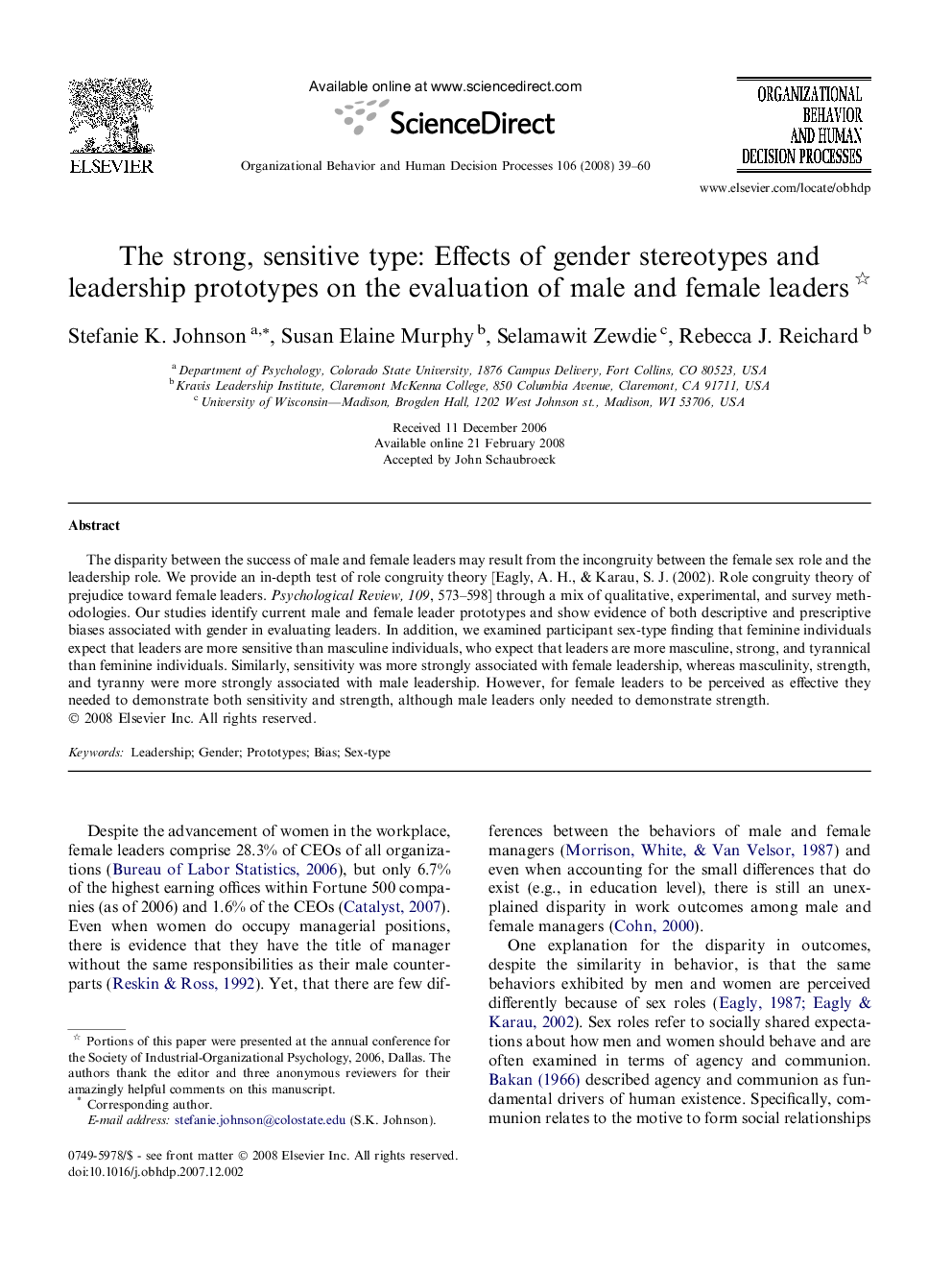| Article ID | Journal | Published Year | Pages | File Type |
|---|---|---|---|---|
| 888924 | Organizational Behavior and Human Decision Processes | 2008 | 22 Pages |
The disparity between the success of male and female leaders may result from the incongruity between the female sex role and the leadership role. We provide an in-depth test of role congruity theory [Eagly, A. H., & Karau, S. J. (2002). Role congruity theory of prejudice toward female leaders. Psychological Review, 109, 573–598] through a mix of qualitative, experimental, and survey methodologies. Our studies identify current male and female leader prototypes and show evidence of both descriptive and prescriptive biases associated with gender in evaluating leaders. In addition, we examined participant sex-type finding that feminine individuals expect that leaders are more sensitive than masculine individuals, who expect that leaders are more masculine, strong, and tyrannical than feminine individuals. Similarly, sensitivity was more strongly associated with female leadership, whereas masculinity, strength, and tyranny were more strongly associated with male leadership. However, for female leaders to be perceived as effective they needed to demonstrate both sensitivity and strength, although male leaders only needed to demonstrate strength.
